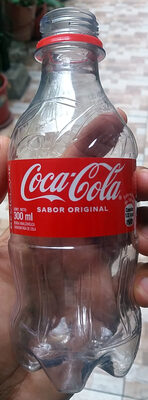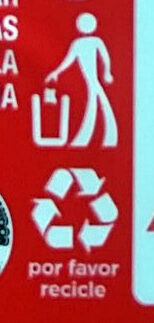Coca-Cola sabor Original - 300 ml
Barcode: 7771609001448 (EAN / EAN-13)
Common name: bebida analcohólica carbonatada de cola.
Quantity: 300 ml
Packaging: Plastic, Recycled material, Pet-polyethylene-terephthalate, Recycled plastic, Bottle, RPET - Recycled Polyethylene terephthalate, Transparent-pet
Categories: Beverages and beverages preparations, Beverages, Carbonated drinks, Sodas, Non-alcoholic beverages, Colas, Cola with sugar, Sweetened beverages
Origin of ingredients: Bolivia
Manufacturing or processing places: La Paz, Cochabamba, Santa Cruz, Tarija, Bolivia
Traceability code: 040103010004, 020103010004, 080103010001, 090103010002
Link to the product page on the official site of the producer: https://www.coca-cola.com/bo/es/brands/c...
Stores: Ketal, Farmacorp, Fidalga, Amarket, FSA
Countries where sold: Bolivia
Matching with your preferences
Report a problem
Data sources
Product added on by jobertic
Last edit of product page on by 5m4u9.
Product page also edited by openfoodfacts-contributors, packbot.












